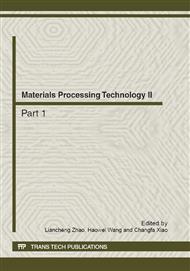p.2236
p.2240
p.2246
p.2251
p.2256
p.2260
p.2264
p.2269
p.2273
Optimal Process Conditions for Levulinic Acid Synthesis from Glucose Using ZSM-5 Supported SO42-/ZrO2 Catalysts
Abstract:
Levulinic acid has been identified as a promising green, biomass derived platform chemical. Since the availability of fossil resources diminishes, the conversion of carbohydrates to Levulinic acid has become increasingly important. ZSM-5 supported SO42-/ZrO2 solid acid catalyst have been applied for the dehydration of glucose to Levulinic acid. With ZSM-5 supported SO42-/ZrO2 solid acid as the catalyst, an optimized Levulinic acid yield was obtained at 180 °C for 2.5 h with 3 g ZSM-5 supported SO42-/ZrO2 catalyst solid acid catalys and the highest Levulinic acid yield was 55.035%.
Info:
Periodical:
Pages:
2256-2259
Citation:
Online since:
June 2012
Authors:
Keywords:
Price:
Сopyright:
© 2012 Trans Tech Publications Ltd. All Rights Reserved
Share:
Citation:


